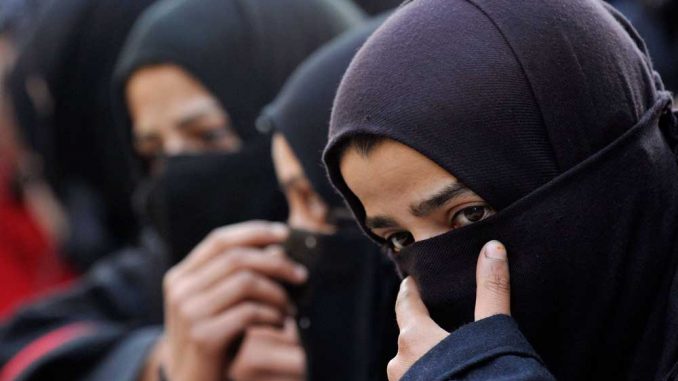
“The Sharia is not divine, it has evolved. It is not a stagnant pool. Centuries after Prophet, they brought in the concept of ‘taqleed’, which means one cannot questioned the Sharia,” said Zeenat Shaukat Ali.
Stating that the Sharia is not divine but has evolved over a period of time, Islamic scholars termed the abolition of talaq-e-bidat (Instant triple talaq) as having a significant advance for women’s movement in India.
Zeenat Shaukat Ali, founder of the World Institute of Islamic Studies for Dialogue, Peace and Gender Justice, explained the concept of triple talaq in the context of how the changes brought about by Prophet in his time took a back-foot after him. “There is no mention of triple talaq in the Quran. It came about much later at a time when palaces were created, harems were created, and a clergy was created. Islam has no place concept of a clergy. This is the background against which the formulation of a different kind of Sharia happened,” she said.
Talking at the Difficult Dialogues gender equality meet in Goa on Friday, Ali, in a panel discussion on the need for potential reformations in Indian Muslims beyond the triple talaq debate, said, “The Sharia is not divine, it has evolved. It is not a stagnant pool. Centuries after Prophet, they brought in the concept of ‘taqleed’, which means one cannot questioned the Sharia,” said Ali.
Zakia Soman, from the Bharatiya Muslim Mahila Andolan, said that Islamic countries have codified personal laws everywhere but 70 years after independence Muslim women are denied protection of law. The BMMA was one of the intervening petitioners in the Shayara Bano case in which the Supreme Court set aside talaq-e-bidat last year. “Indian Muslims are the largest minority. For the sake of pluralism, personal laws are allowed. However, the right to religious freedom is not a group right but an individual right. Indian Muslims have greater patriarchy than elsewhere,” she said. Soman pointed out that while Islam doesn’t allow for triple talaq, nikah halala, it allows polygamy only in rarest of circumstances and yet owing to politicisation of secularism, excesses committed in the name of religion are ignored.
Aijaz ilmi, National media panellist of the BJP, blamed it on the “theocratic illiteracy” of many which is used to perpetuate the patriarchal dominance within the religion. While Ali advocated the education of the Muslim women so that they understand what legal powers they hold, Soman said that between 1986, since the Shah Bano case and now, the ordinary Muslim woman has become more enlightened including on the issue of obfuscation of Quranic argument. “Abolition of triple talaq has been a huge advance for women’s movement in India,” she said.
Source: The Indian Express

Leave a Reply